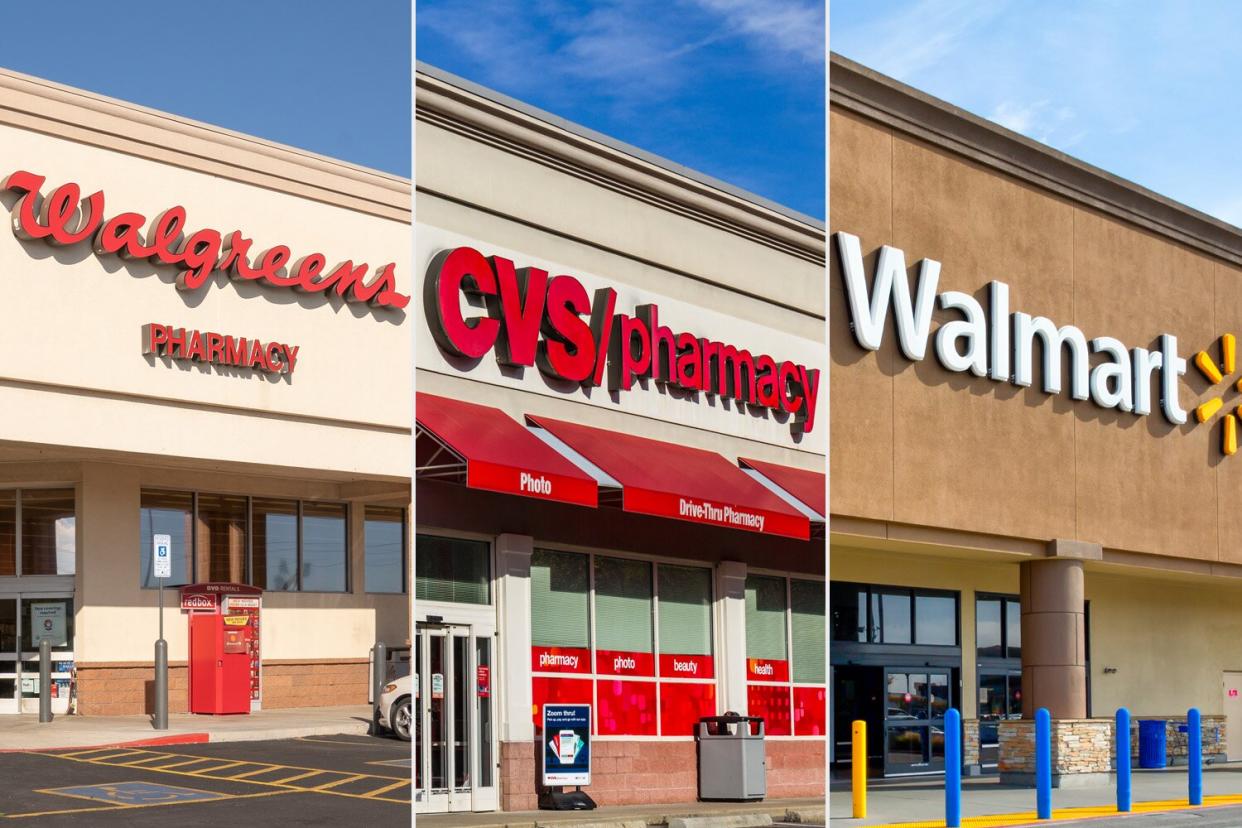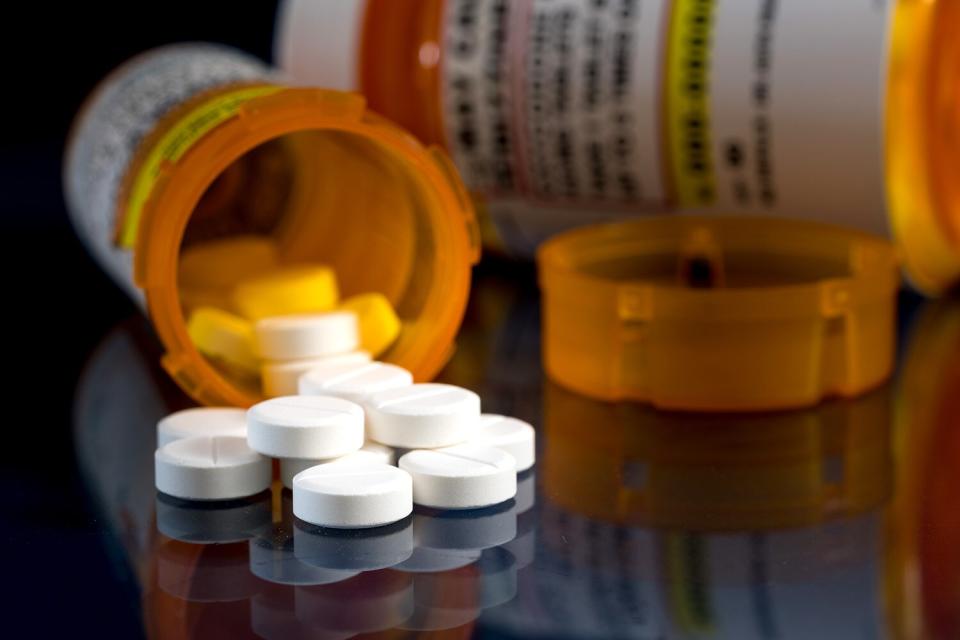Walgreens, CVS and Walmart to Pay $650 Million to 2 Ohio Counties in Opioid Lawsuit, Judge Rules

Getty Images (3) Walgreens, CVS and Walmart
A federal judge in Ohio has ruled that Walmart, CVS and Walgreens must pay two counties in the state a combined amount of about $650.6 million in damages over the course of the next 15 years, in relation to the opioid crisis and their alleged part in it.
CBS News reported that in U.S. District Judge Dan A. Polster's ruling Wednesday, he wrote that the companies had "squandered the opportunity to present a meaningful plan to abate the nuisance." The funds were awarded to Lake and Trumbull counties, near Cleveland.
The three major chains also must adopt new protocols, including training employees on dispensing controlled substances, creating hotlines where patients and employees can report improper pill sales, and designating a controlled substance compliance officer who will review the processes of prescription-validation, The Washington Post said.
The paper explained that federal law dictates that pharmacies are supposed to determine if prescriptions have been issued for a legitimate use before issuing them.
RELATED: Johnson & Johnson to Pay $230 Million in New York Opioid Epidemic Case Settlement
Lawyers representing Lake and Trumbull counties argued that these three pharmacies oversupplied in these areas with more pills than could have been medically needed, the Post continued. The paper said that lawyers have estimated that from 2012-2016, pharmacies dispensed 61 million pills in Lake County, which would be enough to give every man, woman and child 265 pills.
Wednesday's ruling follows a jury verdict last November which found that the companies had played a role in the crisis in both counties, the Post and The New York Times said. According to the Times, that ruling said the companies had continued to dispense large amounts of prescription painkillers despite signs they were being abused.
In a Wednesday statement posted to their website following the ruling, Walmart wrote, "Plaintiffs' attorneys sued Walmart in search of deep pockets, and this judgment follows a trial that was engineered to favor the plaintiffs' attorneys and was riddled with remarkable legal and factual mistakes. We will appeal."

Getty Images Oxycodone opioid tablets
The statement continued, "Instead of addressing the real causes of the opioid crisis, like pill mill doctors, illegal drugs and regulators asleep at the switch, plaintiffs' lawyers wrongly claimed that pharmacists must second-guess doctors in a way the law never intended and many federal and state health regulators say interferes with the doctor-patient relationship."
Jim Cohn, a spokesperson for Walgreens, told PEOPLE in a statement that they too intend to appeal the decision.
"We are disappointed with this outcome," the statement said. "The facts and the law did not support the jury verdict last fall, and they do not support the court's decision now. The court committed significant legal errors in allowing the case to go before a jury on a flawed legal theory that is inconsistent with Ohio law and compounded those errors in reaching its ruling regarding damages."
"As we have said throughout this process, we never manufactured or marketed opioids nor did we distribute them to the "pill mills" and internet pharmacies that fueled this crisis," the release read. "The plaintiffs' attempt to resolve the opioid crisis with an unprecedented expansion of public nuisance law is misguided and unsustainable."
RELATED: Virginia Doctor Who Illegally Prescribed 500,000 Opioid Doses Sentenced to 40 Years in Prison
Michael DeAngelis, a spokesperson for CVS, also said the chain would be appealing in a statement to PEOPLE.
"We strongly disagree with the Court's decision regarding the counties' abatement plan, as well as last fall's underlying verdict," the statement said. "Pharmacists fill legal prescriptions written by DEA-licensed doctors who prescribe legal, FDA-approved substances to treat actual patients in need. We look forward to the appeals court review of this case, including the misapplication of public nuisance law."
According to the Centers for Disease Control and Prevention, nearly half a million people died between 1999–2019 from an overdose involving any opioid. This includes both prescription and "illicit" opioids.
If you or someone you know is struggling with substance abuse, please contact the SAMHSA helpline at 1-800-662-HELP.

 Yahoo Movies
Yahoo Movies 
